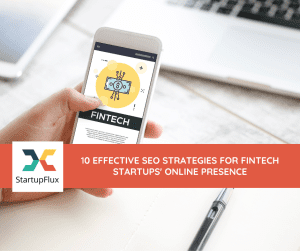Beyond certain characteristics, the similarities between B2B and B2C end, and it is necessary for companies to adopt a different approach for marketing. Some of the common aspects of SaaS B2B and SaaS B2C include the subscription models, and metrics of churn, customer acquisition and lifetime value. However, the bigger differences, the ones that actually impact marketing are the clients/customers, the expenses incurred and the sales cycles. This mandates the need for marketing approaches that can be easily considered as contrarian or divergent.
Targeted and segmented marketing
While it is a settled position that B2B marketing is comparatively easier, this difference is borne out of targeted and segmented marketing. This is supported by statistics, which reveal that 28% of B2B marketers target their marketing at segmented prospects and clients, while only 21% of B2C marketers do the same[1].
Sales cycles – near polar opposites
The sales cycles for B2B and B2C are entirely different, with impulse purchases non-existent in the B2B landscape. And by virtue of B2B SaaS sales mandating the need for multi layered approvals, the time taken to commence and conclude a purchase cycle is longer. This translates into the need for a collection of many high quality leads that can be followed by marketing teams.
Note: It is important to engage your visitors and make yourself more visible if you want to be seen online. Write blogs and publish them on your site which is informative and can draw your visitor’s attention. Create a subscription database so that each blog that you publish goes to these recipients, thus increasing your site traffic. Content optimization helped our clients increase their traffic by almost 300 percent. Check our healthcare digital marketing and legal digital marketing services for success.
Budgets – the BIG difference
Enterprises with a need for SaaS will inevitably have budgets set aside for signing up for services and this makes it easier to measure the metrics of ROI. However, when it comes to B2C marketing, the average customer will certainly not be willing to spend upfront for services, considering that the expenses are recurring, despite being smaller in size. The approach preferred by B2C SaaS marketers is micro conversion of such prospects into sign ups for free services, to be later offered upgrades to premium services at reasonable costs.
Awareness levels and difference in approach
Awareness levels differ among B2B and B2C clientele. Effectively, B2B clients are more aware of their needs and possess greater information about products or services. This translates into the need for B2B marketers to rely on an approach that is more professional in nature, and sharper offering the right kind of information.
Different channels for social media engagement
While social media channels that are used for engaging prospects and clients may at times be the same for both B2B and B2C, there is a strong preference for different channels. B2B marketers will look at official channels like LinkedIn, while B2C marketers will look at channels that are considered as infotainment channels, and more personal in nature like Facebook, Instagram etc.
The branding anchor
Contrary to expectations, B2B clients are more likely to hang on to companies on the basis of branding, than B2C clients. This has got a lot to do with the fact that B2B clients are well into the product/service acquisition phase, long before establishing the actual contact with a company. And the investment/expenses in B2B is considerably more than the average B2C transaction, and this demands that clients know their brand better.
Different objectives of marketing
B2B and B2C have distinctly different objectives of marketing, despite the end objective of converting leads to sales. B2B marketers typically look at increasing the cache of qualified prospects. In other words, B2B marketing looks at superior quality of leads for better conversion rates, while B2C marketing has a sharper focus on increasing repeat purchases.
Shades of buyer personas
Buyer personas are important considerations in SaaS B2B and B2C marketing. B2B marketers have a relatively easier option, because the BP or buyer persona is more or less well defined with a sharp focus on a strategy to meet specific requirements. B2C BPs are relatively complex with different subtle shades that need to be considered when making a pitch.
Content Marketing Strategies
The strategies used for B2B and B2C content marketing are different. While B2B marketers look at content in a more educative form, B2C marketers prefer to package content in a more entertaining and high brand recall value presentation. B2B marketers typically rely on an arsenal comprising additional content channels.
Establishing bridges of relationship
SaaS B2B marketers are aware of the need for establishing long running relationships with clients, all through the sign up process and the lifecycle of using the services. This is different in B2C SaaS sales, where the need is for establishing a connect rapidly, offering a free trial service, followed by an effort to convert free subscriptions into paid subscriptions.
Bigger returns mandate heavier spends
The average return per client in B2B space is more than the average return per client in the B2C space. With heavier returns per client, it is justified that B2B marketing efforts receive heavier budgets, compared to the average budget spend for B2C SaaS marketing efforts. This also needs to be considered in the context of the need for a longer relationship before a prospect becomes a client.
The logical versus emotional angle in the pitch
B2B SaaS sign up decisions are taken on the basis of different influences. For instance, a B2C signup can more likely be the result of an emotional connect, a social media like, or the idea of being associated with a particular brand. Whereas, in the case of B2B SaaS sign up, the decision is more likely to be the result of weighing multiple options, with many rounds of discussions and comparisons at various levels before final approval is granted. Hence, the approach needs to be logical and primed to fulfill all pre-requisites.
Competition analysis
The manner in which B2B and B2C players analyse the competition is entirely different. Many strategies are rolled out on the basis of information and inputs about the competition and the manner in which the competition is faring.
The need to stand tall and towering in a sea of competition makes it necessary for B2B and M2C marketers to be on top of their game. Understanding the core differences will help in identifying and pursuing the right strategy to win the market. Regardless of nature of business, it is a fact that most clients are won through marketing, by reaching out, and it makes sense to reach out in a manner that is effective, guaranteeing a micro-converion.




